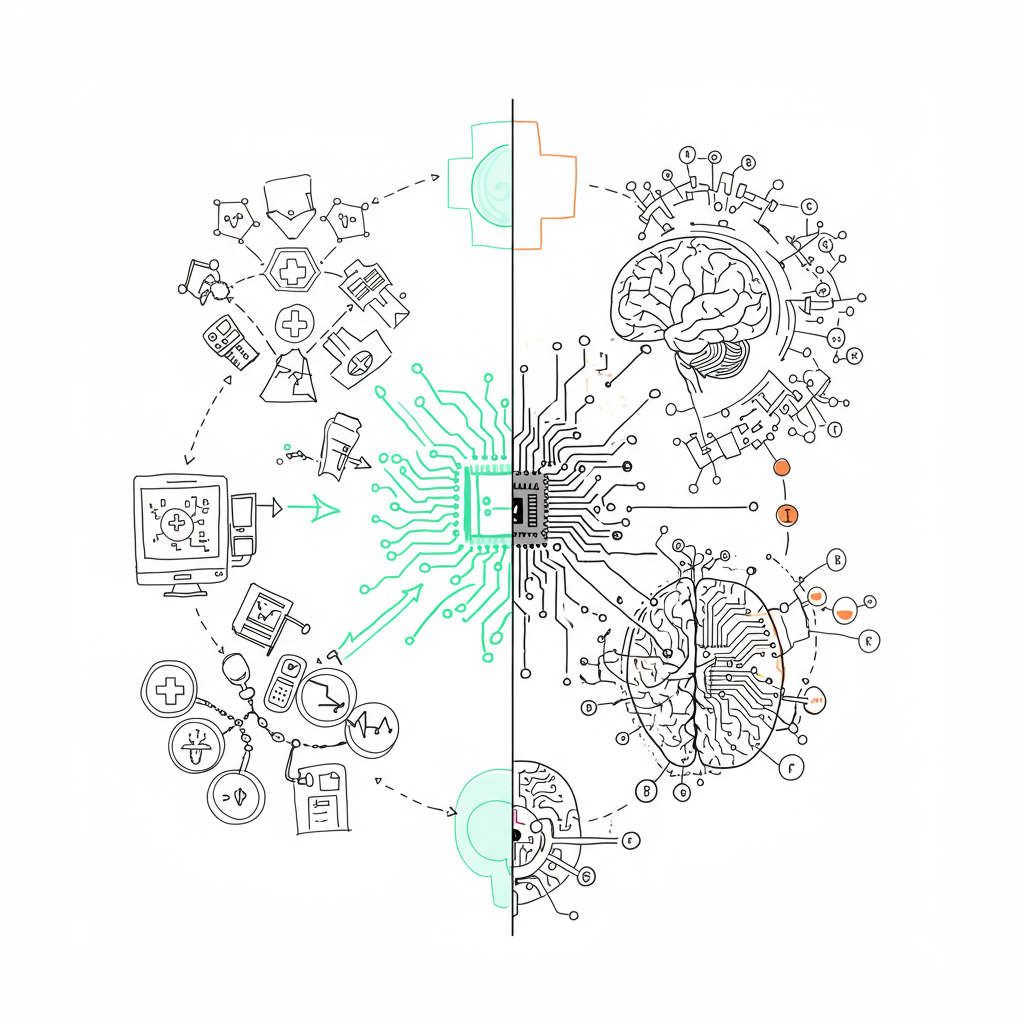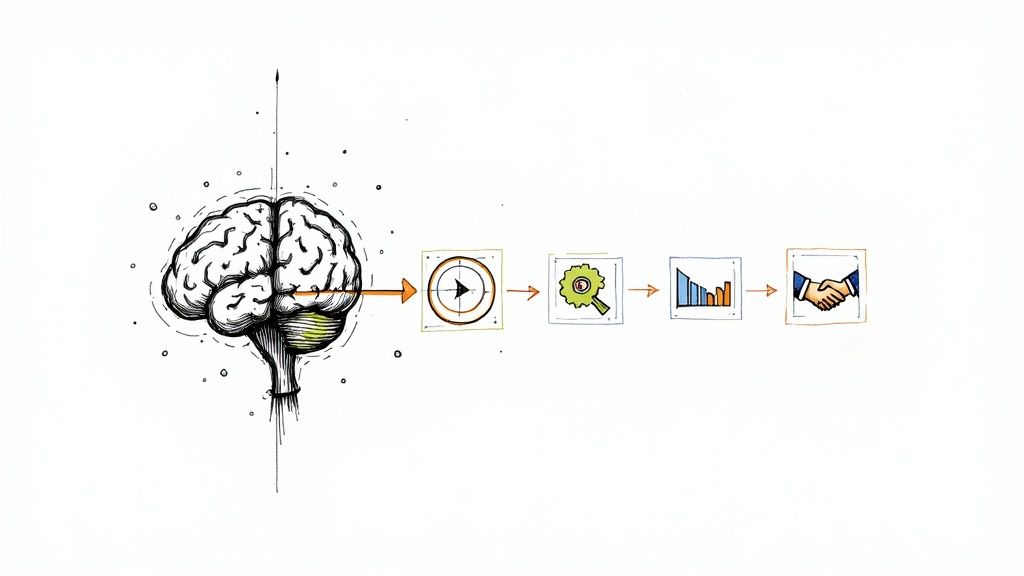Navigating AI Challenges in the Medtech Industry
Explore the challenges and opportunities of integrating AI in the medtech industry, from regulatory hurdles to operational complexities.

The Medtech Industry's AI Revolution: Challenges and Opportunities
In the rapidly evolving landscape of the medtech industry, artificial intelligence (AI) is emerging as a transformative force. However, the journey to integrating AI in medtech is fraught with challenges that demand both strategic foresight and tactical execution. From regulatory hurdles to operational complexities, the path is as promising as it is daunting.
The Shift Towards Value-Based Care
The medtech industry is increasingly driven by value-based care models, where the focus shifts from innovation for its own sake to outcomes and cost-effectiveness. For AI in medtech to succeed, it must clearly demonstrate improvements in patient health, satisfaction, and system-wide efficiency. This shift is not just a passing trend but a strategic evolution. As the LBMC trends report notes, patient-centered models are shaping not only how care is delivered but also how technology is evaluated and adopted.
Commercial Operations: A Digital Transformation Challenge
Medtech sales have long relied on consultative models and trusted relationships with key opinion leaders (KOLs). But digital transformation is pushing this traditional approach into new territory. CRM tools and data analytics are underused, and while AI in medtech offers real potential, such as improving sales forecasting and lead targeting, it comes with complexity.
AI-generated marketing content must meet high standards for accuracy, particularly in a sector where regulatory compliance in medtech is under close scrutiny. Regulators monitor not just product claims, but also the data and methods behind them. Additionally, AI tools that suggest pricing or reimbursement strategies must provide transparency and explainability, or risk triggering competitive and regulatory alarms.
Sales teams must also adapt culturally. The rise of "algorithmic selling" can feel threatening to experienced field staff. Leadership needs to ensure AI enhances rather than replaces their expertise.
Navigating Regulatory and Compliance Challenges
Regulatory compliance in medtech is a constant consideration, and introducing AI only magnifies the stakes. Whether it’s adaptive algorithms or machine learning components, governing bodies such as the FDA, EMA, and PMDA are still refining their approach. Organizations must prepare to demonstrate safety, efficacy, and risk mitigation through rigorous documentation, validation, and traceability.
Under regulations like EU MDR and IVDR, AI software updates may trigger reclassification or resubmission. Compliance teams must proactively adapt, ensuring development processes include version control, robust testing, and a clear audit trail.
A recent Cognizant study revealed that 75% of U.S. medtech respondents find themselves in a “very or somewhat strict” regulatory environment underscoring the urgency of embedding compliance into every phase of product development.
Internal Challenges: Corporate, Strategic, and Support Functions
Beyond product and market dynamics, internal obstacles loom large. Many medtech companies are still defining their AI strategy in healthcare, grappling with questions around governance, infrastructure, and talent.
Legacy IT systems hinder data readiness, while finance leaders often hesitate to fund initiatives with uncertain ROI. Meanwhile, hiring or upskilling data scientists with the required healthcare expertise remains a critical bottleneck.
Cross-functional collaboration is essential, but often difficult due to internal silos. And as AI expands a product’s attack surface, cybersecurity becomes a key component of responsible deployment.
Strategic Alignment and Tactical Mitigations
The medtech value chain from R&D and clinical validation to post-market support—faces traditional hurdles, now amplified by AI’s technical demands. But the solution isn’t abandoning AI; it’s aligning it with clear strategic goals and compliance frameworks.
A well-crafted AI strategy in healthcare prioritizes high-impact internal use cases—like predictive maintenance or supply chain optimization—while methodically preparing regulatory pathways for external, patient-facing solutions.
Conclusion
To unlock true value, AI in medtech must be more than a buzzword. It must be mapped strategically to real-world challenges, with careful attention to regulation, feasibility, and data quality. The most successful initiatives will live at the intersection of technical capability and business value—where clean data meets scalable algorithms, and where leadership balances risk with innovation.
Our in-depth strategy reports reveal how AI is already cutting costs, boosting efficiency, and driving revenue growth across sectors. Just drop your email to get instant access.



